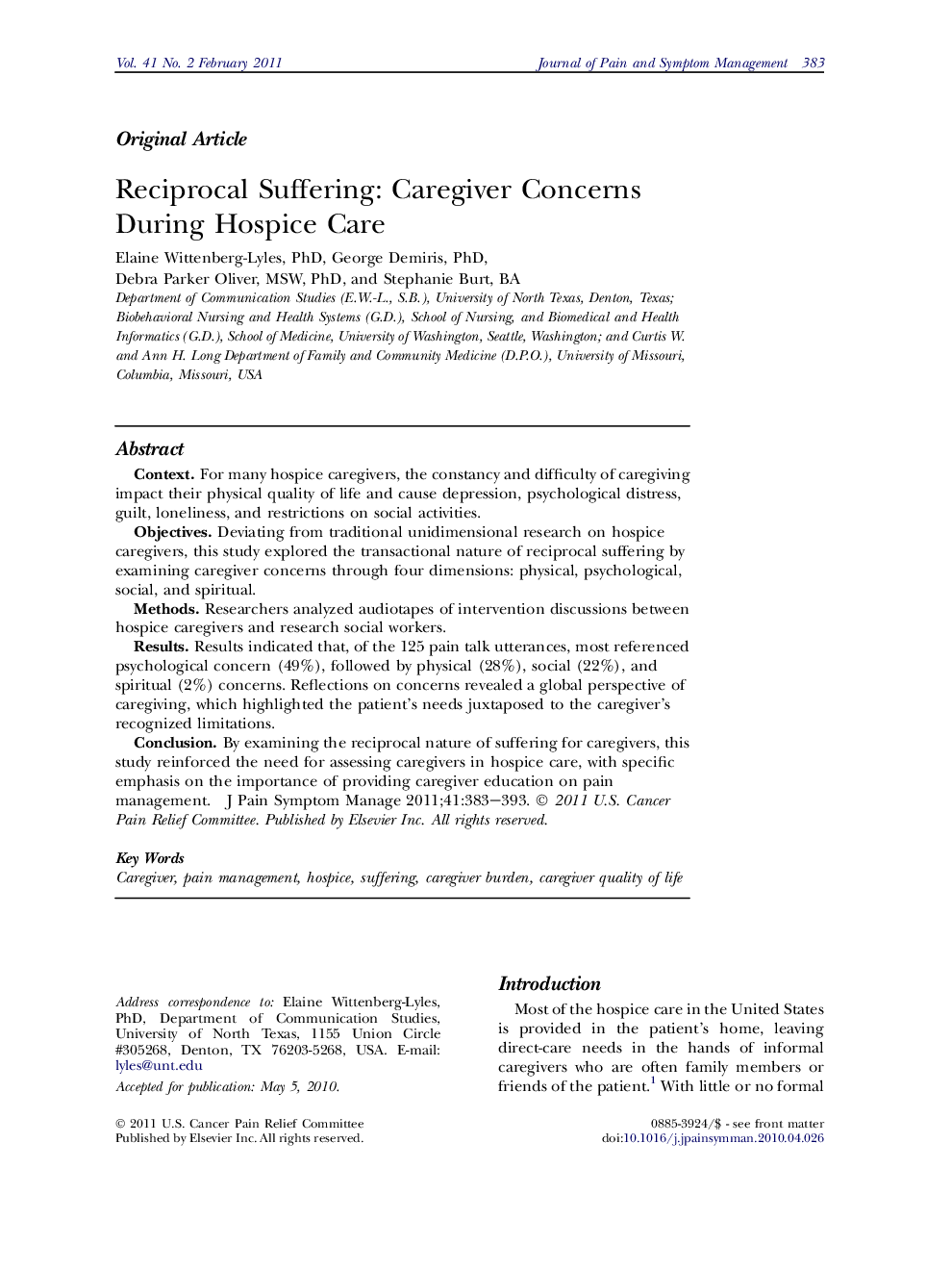| کد مقاله | کد نشریه | سال انتشار | مقاله انگلیسی | نسخه تمام متن |
|---|---|---|---|---|
| 2736171 | 1147827 | 2011 | 11 صفحه PDF | دانلود رایگان |

ContextFor many hospice caregivers, the constancy and difficulty of caregiving impact their physical quality of life and cause depression, psychological distress, guilt, loneliness, and restrictions on social activities.ObjectivesDeviating from traditional unidimensional research on hospice caregivers, this study explored the transactional nature of reciprocal suffering by examining caregiver concerns through four dimensions: physical, psychological, social, and spiritual.MethodsResearchers analyzed audiotapes of intervention discussions between hospice caregivers and research social workers.ResultsResults indicated that, of the 125 pain talk utterances, most referenced psychological concern (49%), followed by physical (28%), social (22%), and spiritual (2%) concerns. Reflections on concerns revealed a global perspective of caregiving, which highlighted the patient’s needs juxtaposed to the caregiver’s recognized limitations.ConclusionBy examining the reciprocal nature of suffering for caregivers, this study reinforced the need for assessing caregivers in hospice care, with specific emphasis on the importance of providing caregiver education on pain management.
Journal: Journal of Pain and Symptom Management - Volume 41, Issue 2, February 2011, Pages 383–393